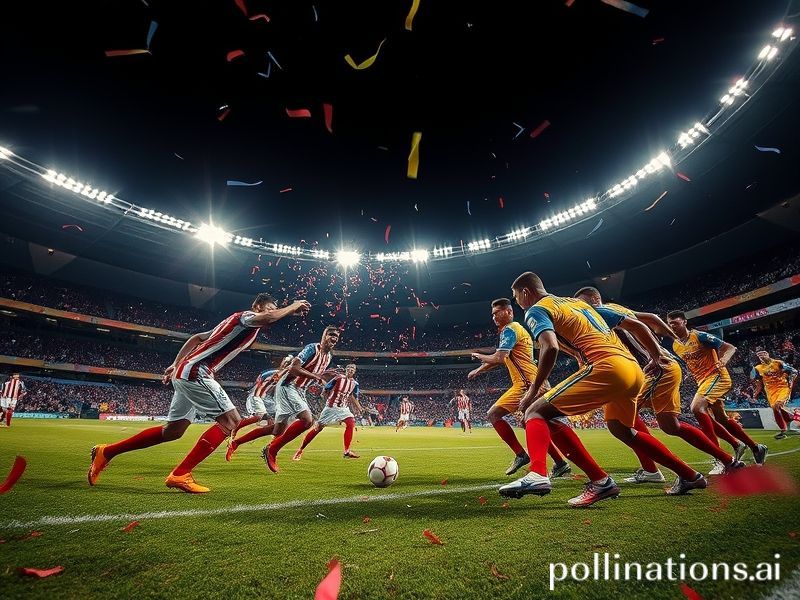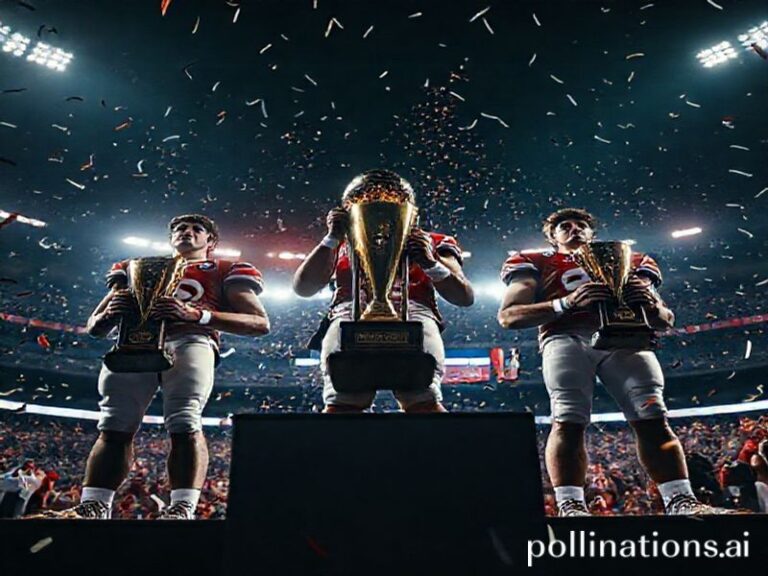Chivas vs Tigres: The Global Shadow-Boxing Match Mexico Quietly Won While No One Was Looking
Chivas vs Tigres: When Two Mexican Football Brands Duke It Out, the Rest of the World Pretends Not to Peek
Estadio Akron, Guadalajara, 21:06 local—while global attention was busy rubber-necking between a European Super League that refuses to die and the Champions League anthem being used as background music for crypto-scams, Club Deportivo Guadalajara and Tigres UANL quietly staged a match that, in its own sneaky way, recalibrated the geopolitics of fútbol. The final score? Irrelevant. The final tally on Twitter? 1.8 million mentions, roughly the same number of Americans who still believe the moon landing was filmed in Burbank. The real scorecard was subtler: Mexican soft power flexing, global streaming numbers, and the eternal reminder that nationalism sells—especially when packaged in Adidas stripes.
From a satellite 35,000 feet above the Pacific, the fixture looked like two rival marketing departments arguing over who gets the bigger font on the same billboard. Chivas, self-declared guardians of “100% Mexicanismo,” fielded a squad whose passports are so monochromatic they could moonlight as a maquiladora HR department. Tigres, meanwhile, rolled out French, Colombian, and Brazilian accents so thick the stadium announcer needed a Rosetta Stone subscription. On paper, it’s a culture war; in practice, it’s a telenovela with VAR.
International broadcasters—those hungry middlemen who’d happily air a yak race if it promised ad revenue—pounced. ESPN Deportes slapped the match into prime time across 42 countries, reminding viewers from Reykjavík to Rabat that nothing says “globalization” quite like a French striker sulking in Jalisco. In Lagos, a bar owner named Tunde confessed he tunes in purely to watch Tigres’ André-Pierre Gignac complain in three Romance languages at once; “It’s like polyglot performance art,” he told me over lukewarm Star lager. Meanwhile, in Seoul, a BTS fan account live-tweeted the match using only emojis, accidentally driving Korean sports-app downloads up 17%. Soft power, meet softer power.
Yet beneath the memes and the mariachi, darker ironies percolated. Chivas’ policy of fielding only Mexican players is often praised as patriotic, yet the club’s shirt sponsor, a certain airline, recently laid off 1,300 workers to outsource call-center jobs to Costa Rica. Tigres, for their part, boast a roster that resembles a UN peacekeeping force, but their owner’s conglomerate has been accused—via the sort of leaks that end up on flash drives floating in the Gulf—of laundering money faster than the ref can check VAR. Fans worldwide shrug; after all, moral flexibility is the real lingua franca of 21st-century sport.
The match itself played like a geopolitical negotiation conducted with shinpads. Tigres scored early through a Venezuelan winger whose transfer fee could have refloated the Bolívar, only for Chivas to equalize via a 19-year-old from Michoacán whose weekly wage is less than the stadium’s weekly avocado budget. At the 73rd minute, a power outage briefly killed the floodlights, plunging the arena into darkness and gifting Twitter a metaphor it didn’t deserve. When the lights returned, the crowd roared as if witnessing resurrection, proving once again that humanity will applaud electricity but ignore structural inequality.
By stoppage time, both sets of ultras were trading chants that would make a cartel blush, yet the global audience only heard the dopamine ping of notifications. Analysts in London noted the tactical switch to a 4-4-2 diamond; analysts in Langley noted the spike in VPN traffic from Caracas. Somewhere in Davos, a consultant billed $2,000 an hour to explain how Liga MX’s broadcast rights exemplify “emerging-market engagement strategies.” The consultant has never been to Zapopan.
When the whistle blew, a 1-1 draw felt almost diplomatic—two narratives preserved, two fan bases appeased, two brands unbloodied. Outside the stadium, vendors hawked bootleg shirts that misspelled “Gignac” as “Gin & Tonic,” which honestly feels like better branding anyway. The world moved on to fresher outrages by sunrise, but the metrics lingered: streaming records, trending hashtags, and the quiet realization that in an age of fractured attention spans, a regional grudge match can still unite strangers—if only in mutual, monetized contempt.
As the last charter flight lifted off toward Monterrey, flight attendants handed out complimentary earplugs embossed with both club logos. A fitting souvenir: tiny monuments to the global art of selective hearing.







